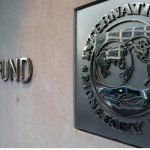The International Monetary Fund (IMF) has expressed concerns over the increasing exposure of commercial banks to domestic bond markets in emerging and developing economies, warning that this trend could heighten financial risks.
In a report titled Fiscal Determinants of Domestic Sovereign Bond Yields in Emerging Market and Developing Economies, the IMF highlighted how domestic sovereign bonds have become a primary source of government financing, with banks playing a dominant role in absorbing debt. The report noted that this reliance has intensified since the global financial crisis and accelerated further after the COVID-19 pandemic.
The IMF cautioned that excessive holdings of government debt by domestic banks could raise borrowing costs, depending on fiscal policies and market sentiment. Over the past two decades, many emerging economies have shifted towards domestic financing to reduce currency risk, but this has also deepened the financial links between banks and sovereign debt, increasing systemic vulnerabilities.
The COVID-19 pandemic further exacerbated this dynamic, as governments faced urgent financing needs and turned to domestic bond issuances. Domestic banks and foreign investors absorbed much of this debt, but the IMF warned that as debt markets expand, understanding the risks associated with domestic borrowing costs is critical.
The Fund emphasized that greater reliance on banks for deficit financing strengthens the impact of loose fiscal policies on bond yields. It also warned that the growing connection between bank investments and sovereign debt could amplify financial sector risks in emerging economies.
Additionally, the IMF raised concerns about potential spillovers from banking sector risks to sovereign creditworthiness. Banks holding excessive government debt could face increased credit risk, and in cases of financial distress, governments may be forced to provide guarantees, further straining public finances. A weakened banking sector could also limit lending to businesses and households, slowing economic growth and compounding fiscal challenges.
The IMF’s analysis, based on data from its Monetary and Financial Statistics database, underscores the need for emerging economies to monitor banking sector exposure to public debt. While local debt markets help in assessing default risks, the IMF warned that high sovereign-bank interdependence could magnify the impact of fiscal instability on bond yields.










